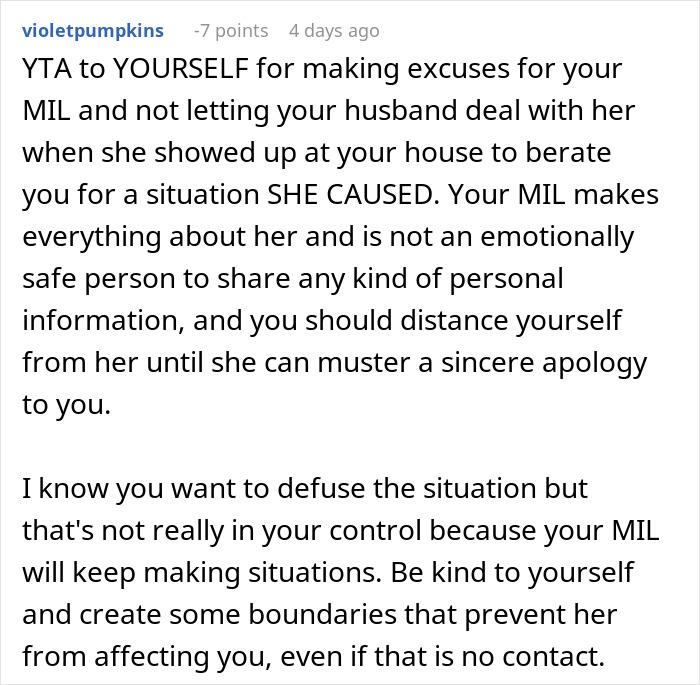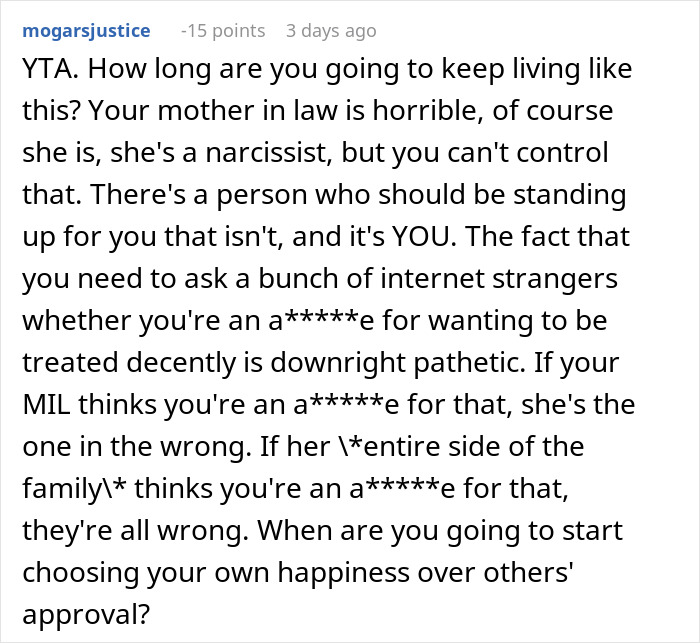Movies and TV shows joke about meddling in-laws, but the reality is that overbearing family members are a very real problem for many couples.
For Reddit user Embarrassed_Pea1036, the pressure was especially heavy during Thanksgiving, when she was expected to act like all was good and well even though she had just lost her pregnancy.
The woman and her husband tried their best but her mother-in-law didn’t. The lady revealed what had happened to the entire family after she was explicitly asked to keep it a secret.
Getting pregnant after multiple miscarriages can be a deeply emotional and vulnerable experience, especially when deciding how and when to share the news

Image credits: Gustavo Fring / Pexels (not the actual photo)
For this couple, the husband’s mother decided to invite the whole family into their personal lives
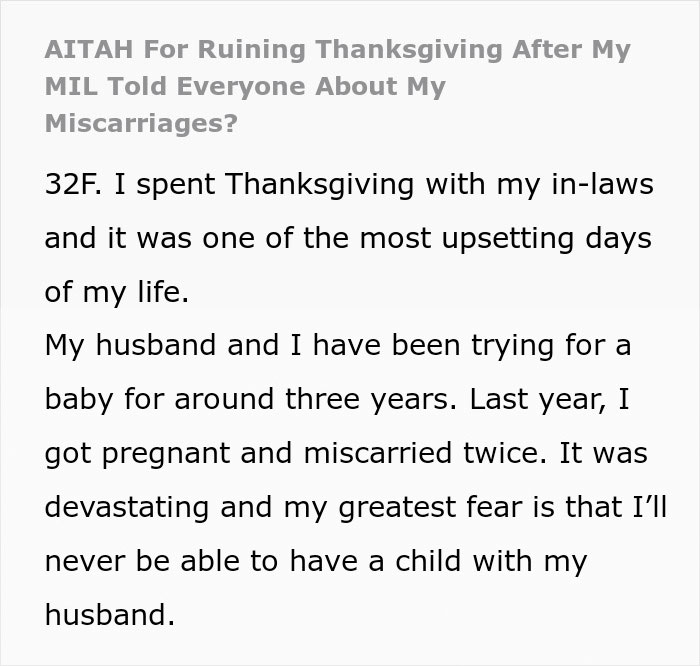

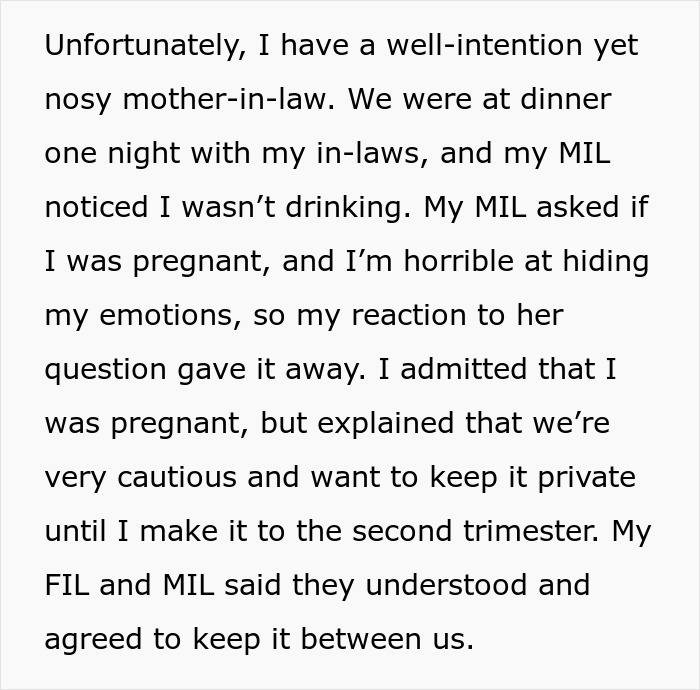


Image credits: Nicole Michalou / Pexels (not the actual photo)


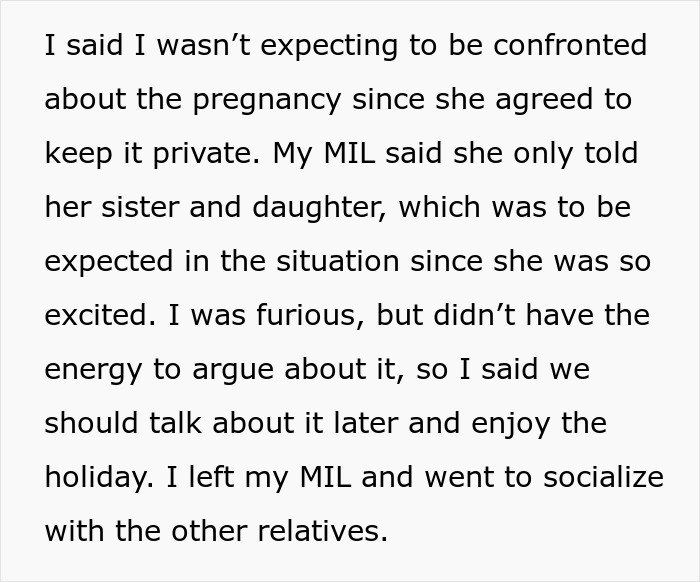

Image credits: Karolina Grabowska / Unsplash (not the actual photo)
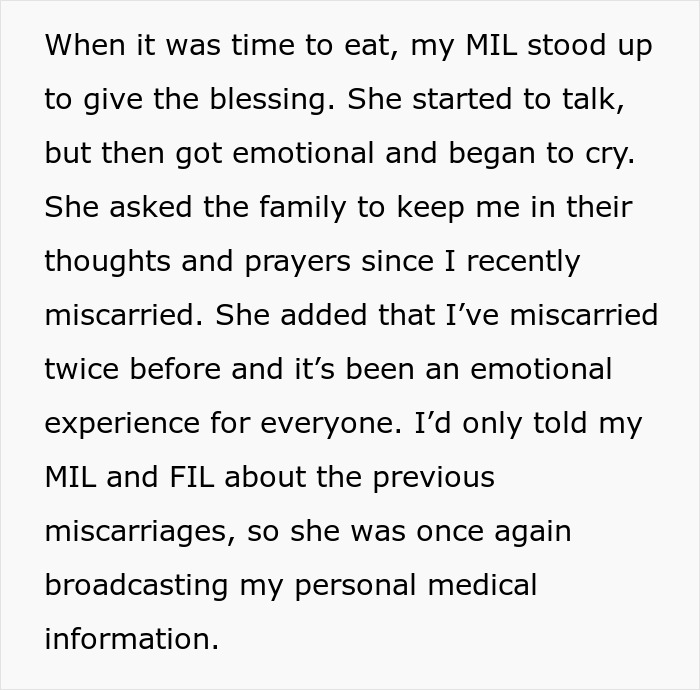



Image credits: MART PRODUCTION / Pexels (not the actual photo)
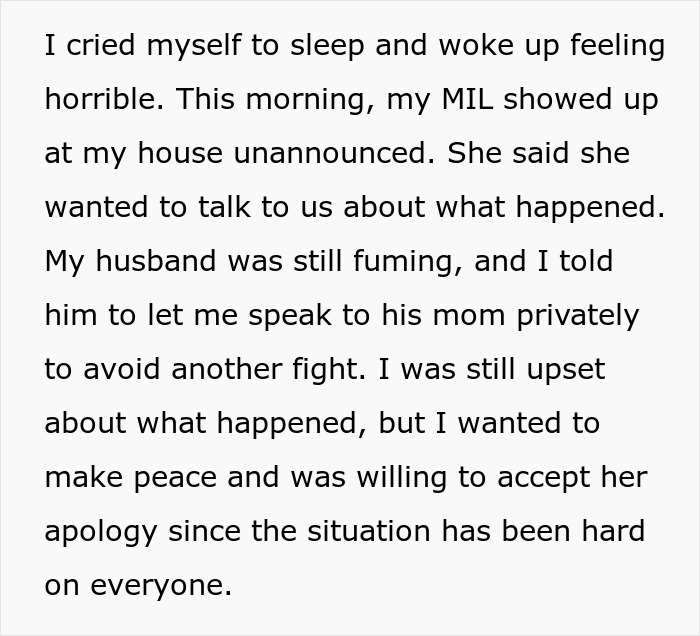
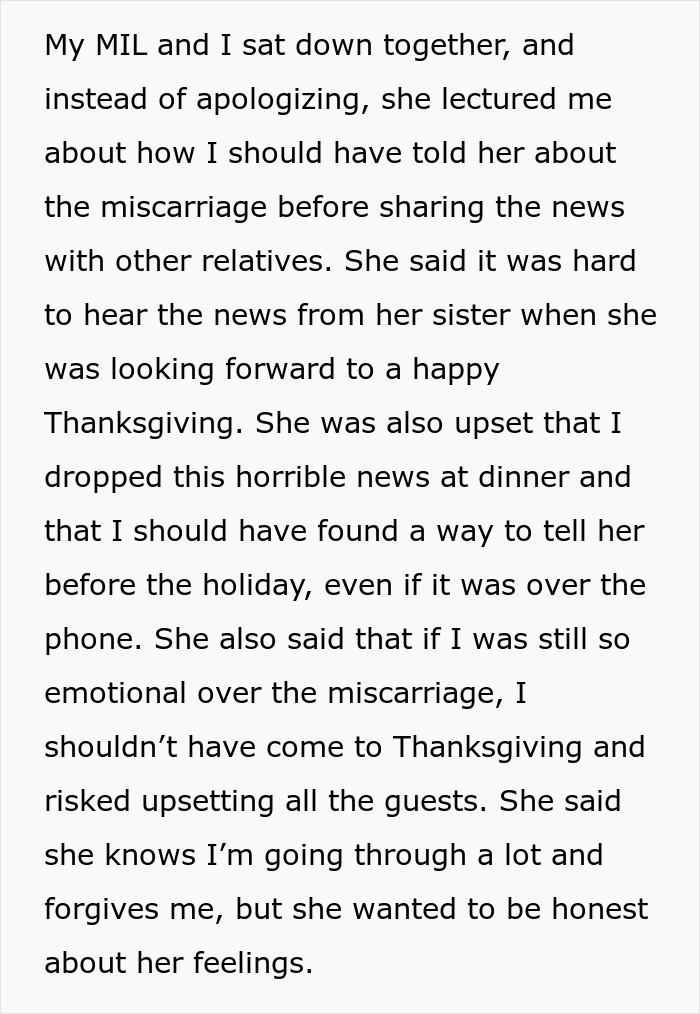
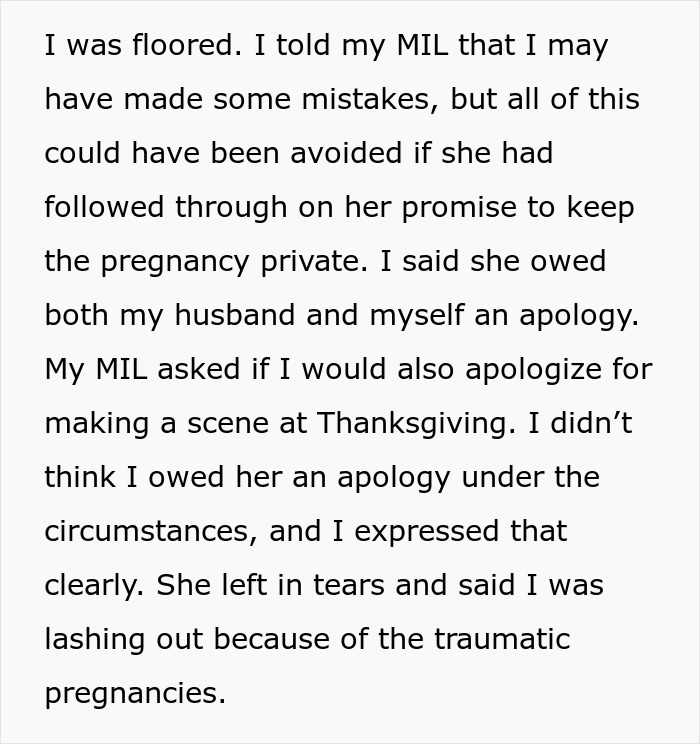


Image credits: Embarrassed_Pea1036

Image credits: cottonbro studio / Pexels (not the actual photo)
The holidays are supposed to be joyous occasions, but they can quickly become really stressful
According to a survey from last month, one in four Americans dread going to their-in-laws for the holidays. Nearly 10% even cry over the stress of spending the holidays with their partner’s parents.
Given all the anxiety and apprehension, nearly a quarter of Americans say that holiday plans lead to tension with their significant other. This causes 10 percent to opt out of attending a holiday gathering altogether and prompts more than a third to consider an at-home celebration.
It’s incredibly saddening that during such an already tense period, the woman’s painful personal loss was turned into a public spectacle.
It is estimated that around 10% to 20% of pregnancies end in miscarriage, but the actual number is likely higher because many of them happen even before people realize they’re pregnant.
Studies also show that one month after women experience it:
- nearly one in three (29%) have PTSD, compared to none with healthy pregnancies;
- one in four (24%) have anxiety, compared to one in eight (13%) with healthy pregnancies;
- and one in ten (11%) have depression, compared to one in fifty (2%) with healthy pregnancies.
At least the woman managed to stand her ground in the face of such a traumatic experience.
Sylvia L. Mikucki-Enyart, Ph.D., an associate professor of communication at the University of Iowa and senior research fellow at UI’s Public Policy Center, says that while rose-colored glasses and avoidance can be helpful, especially for behaviors or comments that are low stakes, this doesn’t mean you have to let bad behavior slide.
“You don’t have to deal with bad or toxic behavior because that’s ‘just how so-and-so is’ or ‘the way things have always been,'” she explains.
One strategy Mikucki-Enyart suggests is the three-strikes rule.
“First, let your in-law know that their behavior or comment isn’t acceptable, and you would appreciate it if they stopped. Then let them know your consequence, or what you intend to do if they continue, such as leave the event, ask them to leave, or not return to celebrate with them next year. Often, this is enough to nip the behavior or comment in the bud. However, if they do it a second time, remind them of your boundary and consequences. And, if for some reason, they do it a third time, follow through on the consequence.”
And it’s nice that the author of the post and her husband have each other’s backs too.
Most of those who read the story said its author didn’t owe her mother-in-law an apology



















Some even said that she was being a jerk… to herself
